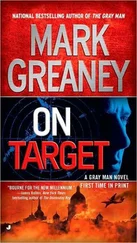Ji-hoon’s muscle flexing did not just take place on the world stage. As he grew into his role over time, he exerted more and more domestic power, and he took that power away from the six men his father had left behind. Any pushback by the six was seen as a direct menace to his reign, and Ji-hoon’s growing paranoia about threats at home and abroad all but made it inevitable he would eliminate his council of advisers.
Within a month of this decision five of the council had been executed for myriad imagined crimes against the state. Getting rid of the sixth man, however, had proved more difficult. Choi Sang-u was Ji-hoon’s uncle and a seventy-year-old diplomat who had served as his father’s foreign minister. After his father’s death Ji-hoon made Sang-u ambassador to China, a step down from the nation’s top diplomat but still an important posting, especially considering China’s close relationship to North Korea. The two nations were allies, though less so now, because China had been frustrated by young Ji-hoon’s saber rattling. The last thing China wanted or needed was a destabilized Korean Peninsula, after all, so China’s relationship with its neighbor had cooled precipitously.
Other than some trade with China and a few other nations on a much smaller scale, the economy of North Korea was effectively closed. Ninety-five percent of all goods produced in the nation were created by state-owned firms.
Still, China was the North’s largest trading partner, and China had no greater industrial influence than in the mining sector because it had long been known by the Chinese that North Korea’s real value lay under its dirt.
Everything changed in the relationship between the two nations when a group of Chinese geologists working in North Korea revealed they had found deposits of valuable rare earth minerals in the mountains in the northwest of the nation. The North Koreans had hundreds of mining contracts with the Chinese, together they dug coal, iron, silver, and nickel, but this rare earth find was exceptional. The geologists dug test mines and their proclamations became more and more optimistic.
Finally it was decided by the Chinese that the world’s largest find of rare earth minerals, some 213 tons in all, was likely buried near Chongju, under the rolling hills of Pyongan-bukto Province near the coastline of Korea Bay.
The Chinese state-owned mining company was given rights to develop the deposits for twenty-five years, the paperwork was signed, and they began building up the infrastructure in the area necessary for the work.
And then, after one year of hard but productive work, Choi Ji-hoon ordered his uncle, the ambassador to China, home for consultations. He explained to his uncle that the newfound wealth the Chinese had promised was all very well and good, but the Chinese had something that was even more important to North Korea than wealth.
Ji-hoon’s uncle was confused. “What do they have, Dae Wonsu?”
“They have the technology we need.”
The uncle brightened. “Yes. All the newest drilling equipment has been brought in already. The computers that maximize productivity are being installed as we speak. When the mine goes on line next year we will—”
“I am not talking about mining technology, Uncle. I am speaking of missile technology.”
“Missiles?”
“Of course. The Chinese have been reluctant to share with us their expertise for mid-range and long-range intercontinental ballistic missiles. I want the expertise. I want North Korea to develop its own domestic long-range rocket industry, and China is the key to this.”
Ji-hoon’s uncle nodded slowly, looking off into space as if he were intrigued by his brilliant nephew’s scheme. “Are you saying we only continue the rare earth mining partnership if China supplies us with ICBMs?”
Choi Ji-hoon said, “Exactly that, Uncle.”
The uncle had known his nephew for his entire life. That he had to couch his words carefully to him, just as he had his brother, was still odd, but he knew what was good for him. “I think this is wise and shrewd diplomacy on your part, Dae Wonsu. I only wish the Chinese shared your brilliance. I am afraid that the Chinese diplomats are unrealistic, and they might jeopardize the lucrative mining operation if they refuse our reasonable request.”
Ji-hoon waved the comment away as if it were a trifling concern. “You have excellent relations with the gang-jae .” It was a derogatory word for Chinese, akin to calling them Chinks. Ji-hoon’s uncle fought back a wince. “You must see that they do not refuse, Uncle.”
The negotiations happened in Pyongyang; several of China’s top leaders came, hats in hand, ready to offer almost anything to continue the rare earth mining contract with North Korea.
Almost anything.
When Choi’s negotiators explained the Chinese contract would be invalidated if they did not provide the DPRK with a ballistic missile manufacturing center, including the materials and the expertise to run it, the Chinese went home to Beijing, spoke with the Central Committee in secret, and returned. They offered more food, more money, more conventional weaponry, marine military technology on par with China’s own Navy. They offered expanded trade rights, and better terms on China’s processing of the rare earth minerals after extraction. They offered high-profile diplomatic official visits by the Chinese leader to increase North Korea’s cachet on the world stage, and they extended invitations for Choi to come to China as a guest of the president.
But Choi had not been raised in a manner conducive to producing a diplomat. He’d been given virtually everything he wanted since birth; those around him knew crossing him could be punishable by death. He was therefore a truly awful negotiator. He was intractable, inflexible, and impatient.
Choi rejected it all. He wanted the means to deliver a nuclear device to the United States. In his mind it was the only way to be safe from attack and assassination.
China refused to allow the DPRK access to the technology to create their own long-range ICBMs. It wasn’t that China was trying to protect the United States, far from it. It was simply that China realized what North Korea would do once they had the most dangerous and most valuable bargaining chip in international affairs. They might or might not use the device, but the death of millions of Americans in nuclear fire was of lesser concern to the Chinese than the certainty that the ostracized pariah North Korea would exercise their newfound power on the world stage recklessly and threaten the region.
The destabilization of the Korean Peninsula was hardly in China’s self-interest.
One month to the day after the negotiations for the Chongju mine began in Pyongyang, the Chinese were notified that every Chinese national at the mine had seventy-two hours to leave the country. The executives of Minmetals and Chinalco, China’s state-owned mining operators, tried to reason with the North Koreans, but no North Korean official dared read any flexibility in Choi’s demand where none existed. The Chinese at Chongju rushed out of the country, leaving much of their equipment behind, though the Chinese geologists and engineers had done a remarkable job getting as much of it out of the DPRK as possible.
The open-pit mine went dormant overnight despite Choi’s demand to the director of the government’s mining arm, Korea Natural Resources Trading Corporation, to keep the mine open and operational.
The truth was the North Koreans had neither the equipment nor the know-how to operate a rare earth mineral mine on their own. On top of that, the Chinese had taken their generators with them, and the power lines into Chongju were inadequate for the operation.
Читать дальше












